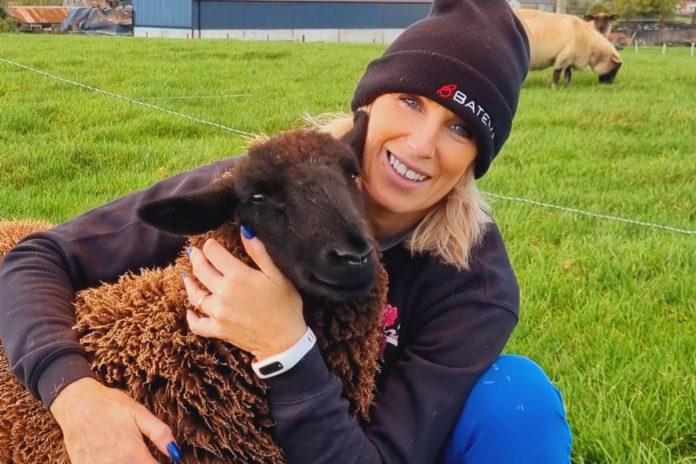Catherina Cunnane, That’s Farming editor, in conversation with Alison Lyness-Lappin in this week’s women in ag segment. We discuss carrying on the family’s long-standing tradition and what is involved in running a beauty salon and Lismaine Farm.
“We live in Co Down near a little village called Magheralin, which many of our fields run through the famous River Lagan.
I am the fourth generation to run our farm. I live next to the family farm with my husband, Paul, who has no farming background. However, he can turn his hand to anything, and we work as the dream team. Mum and dad live in the original farmhouse.
I was born a farmer, growing up as an only daughter. My mum worked full-time as a secretary in a cheese factory now known as Glanbia.
Being a full-time farmer, my dad brought me everywhere he went, may it be a sale yard, to lamb ewes, calve cows, make hay or shear or dip sheep! I was involved in everything.
My dad, Ted, owns the farm. But I must remember my dad still thinks he is the boss and sometimes keeps reminding us both of his ways, which we do not always agree with, but sure he has the experience.
At present, I run our farm with my husband, Paul, who works full-time in management.
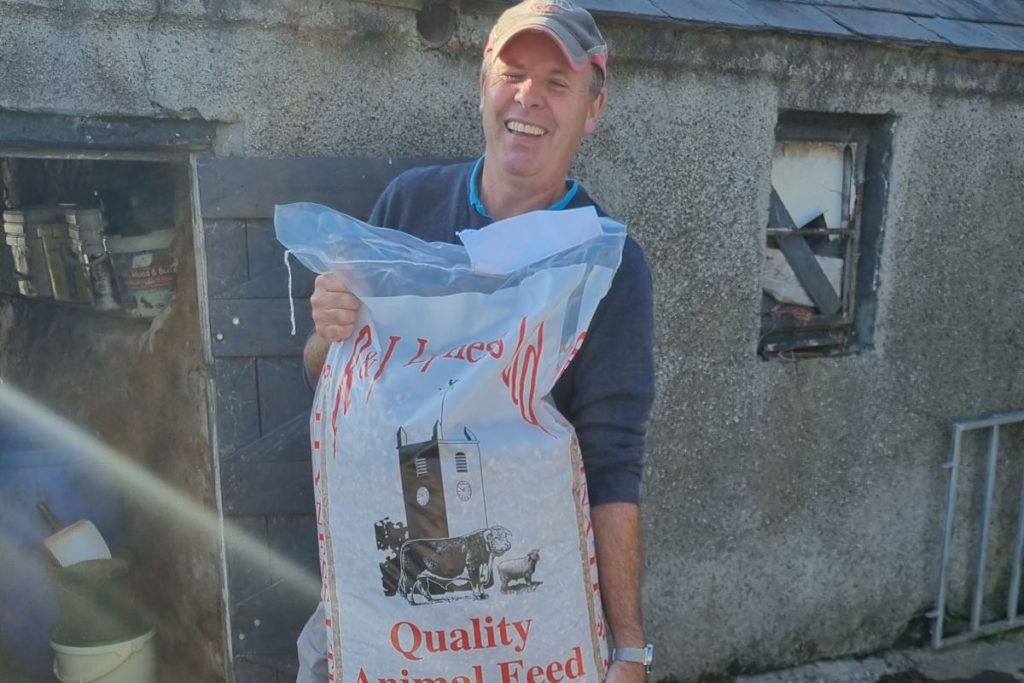
Taking over Lismaine Farm
An opportunity arose five years ago on our family farm when my dad suffered bad health and decided to slow down his stock.
We had to decide: should he quit farming or let the farm out? In no way was I letting our farm go, as it was always my way of life.
Therefore, my dad, Paul and I discussed to see what could happen. I was very keen to carry on the farm and give myself a challenge and bring new ideas and ways to the farm.
The only problem was I own my own beauty salon which I run from home, which is so different to farming, and my husband is working full-time. So, we decided I would do my business part-time and carry-on farming.
One minute I am all dressed up and the next, I am in wellies, out farming livestock. It is mad busy, but it is what I enjoy doing.
Lismaine Farm is home to sheep, suckler cows and beef. Cattle breeds we use include an Aberdeen Angus bull with Aberdeen Angus-cross cows, and we have Belgian Blue heifers.
My dad always kept Aberdeen Angus cattle, and it worked with ease of calving and the end result for bringing cattle through to slaughter from 24 to 28 months. Also, we find they make great replacements.
Sheep farming
Our sheep breeds are Charollais, Beltex, Dorset and some cross-bred ewes. Paul and I decided to go into pedigree Suffolk tups in the last couple of years.
We are getting great results, with lovely ewe lambs, which are keepers. Also, we have Charollais and Dorset tups.
We are now hoping to diversify into more pedigree sheep. We lamb our sheep from February to April in three lots. Furthermore, we feed good quality baled silage which we start them on in the field before housing.
This year we wanted to keep them out longer, but with very wet conditions, the ground just would not hold out. Therefore, we housed all except some ewe lambs; they are still out.
We start giving a little meal at eight weeks and increase the rate in the last 4 to 6 weeks. Also, we vaccinate and get high energy buckets, plus molasses for energy.
We house our sheep a little longer than most to avail of grass growth. We make our own silage in June and round bales in August, which agricultural contractors oversee.
A passion for sheep
We farm nearly 100 head of cattle and 200 sheep, which keeps me busy farming on my own.
Farming is amazing as each day is different, from an easy day to another, with everything going wrong.
That is the challenge you face, but with the love and passion for something, it gets you through.
I have to say I am most passionate about sheep. My dad says I would do anything for sheep before humans.
Four important things when handling sheep are a good dog, sheep hurdles, a turnover crate when handling on your own and amazing patience.
My husband, Paul, loves cattle. He argues that sheep are very needy, so the combination of both works well!
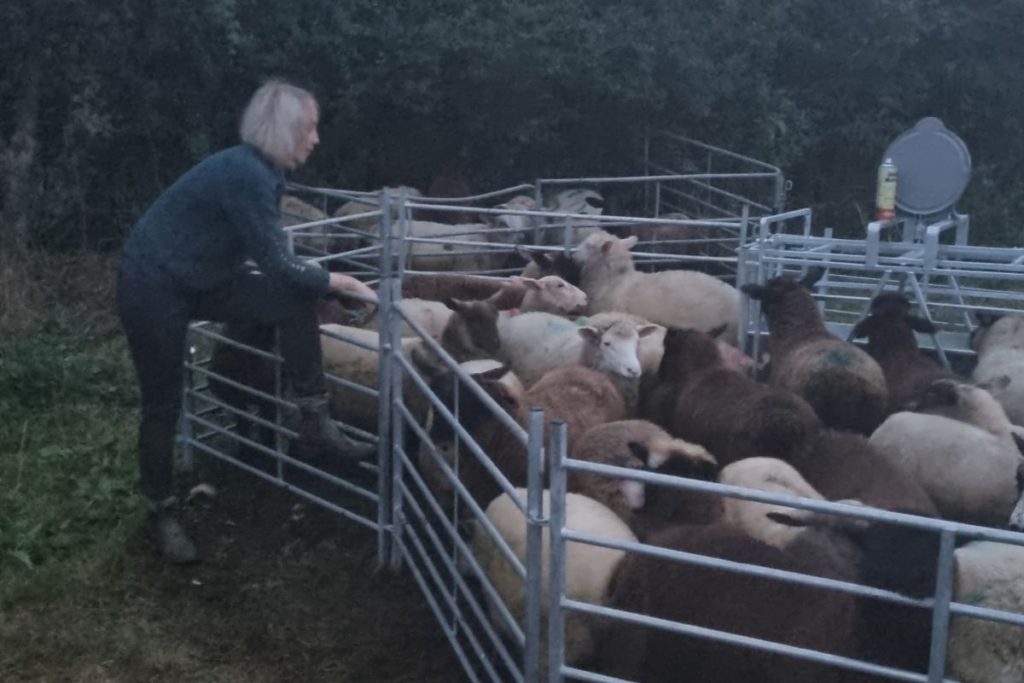
Responsibilities
My daily responsibilities in winter are feeding cattle silage and meal, mucking out, bedding, and checking to ensure that all animals are all healthy and well.
In terms of sheep, I feed, clean and bed them, along with other general duties.
We are also taking on the approach of strip and paddock grazing, which we are finding works well with livestock grazing.
Also, we have taken to fencing fields into smaller sections. Soil sampling is another new addition we are taking, which is important for forward farming.
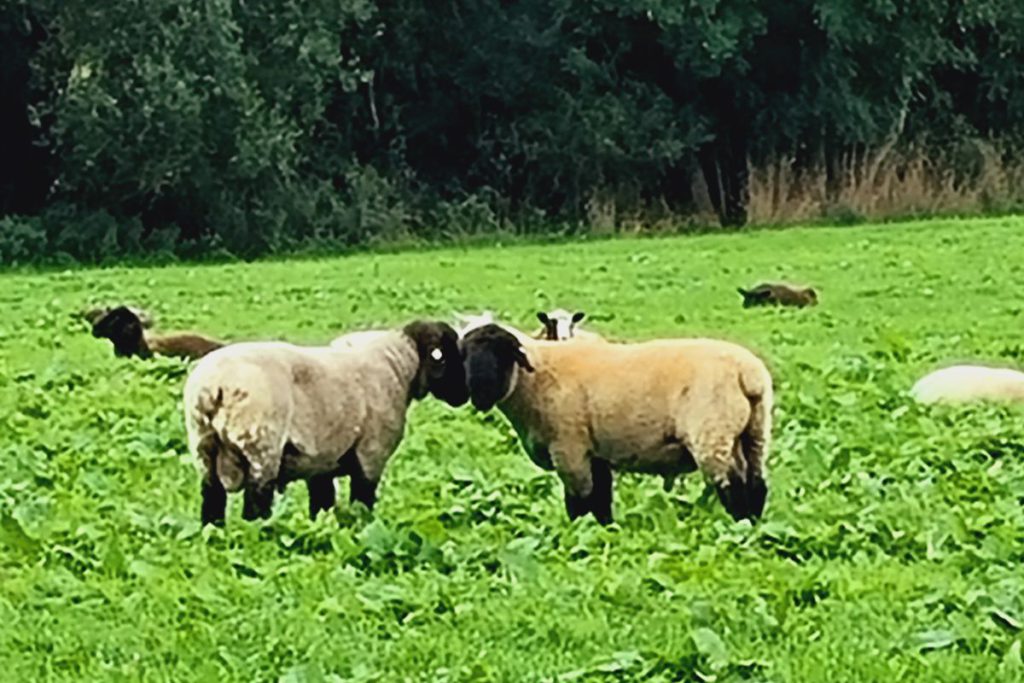
TB outbreak
The biggest challenge I have ever faced in farming was nearly four years ago. Not long after dad gave us the reins, we were struck down with a dreaded TB outbreak.
This was a massive challenge for us both. We lost 42 cattle in one go. I will never forget the feeling to the day I die, seeing the best of our animals leaving us, including an amazing Angus bull who, of course, had a name, Andy.
We then had to isolate all 42 animals until collection. It broke my heart when I looked out and saw a big Scania two-decker lorry reversing up the yard. Cows had to go, leaving their calves behind.
The hardest part was seeing the cattle house so bare without ¾ of our cattle.
We were treated so well with advice from our local department of agriculture official.
They gave us an option to maybe clear all our cattle out and start with fresh stock in a few months.
Both dad, Paul and I thought hard with sleepless nights about what to do. I said we would give it a second go and try another test. You need to have two clear tests.
Now, remember the last test, we had 42 down. The two months test came, which was so nerve-wracking. We got clear tests, which our local vet mentions to this day.
We just had our annual TB test and got the all-clear on January 1st, 2022. TB is a big threat in our area.
Women in farming
Being a woman in farming, I have never felt different from my male counterparts, as I grew up with men during my young farming years.
In the last few years, women are becoming more and more involved in farming. Women are now seen regularly at livestock marts, and they dominate our local vet clinic. It is lovely when they visit our farm having a catch-up.
With social media networks, there are many opportunities for women to be recognised in farming.
For women to take up agriculture, we have modern farming skills; we are good communicators, and multi-taskers and are used to hard work with the odd challenge. They always say behind every man is a greater woman!
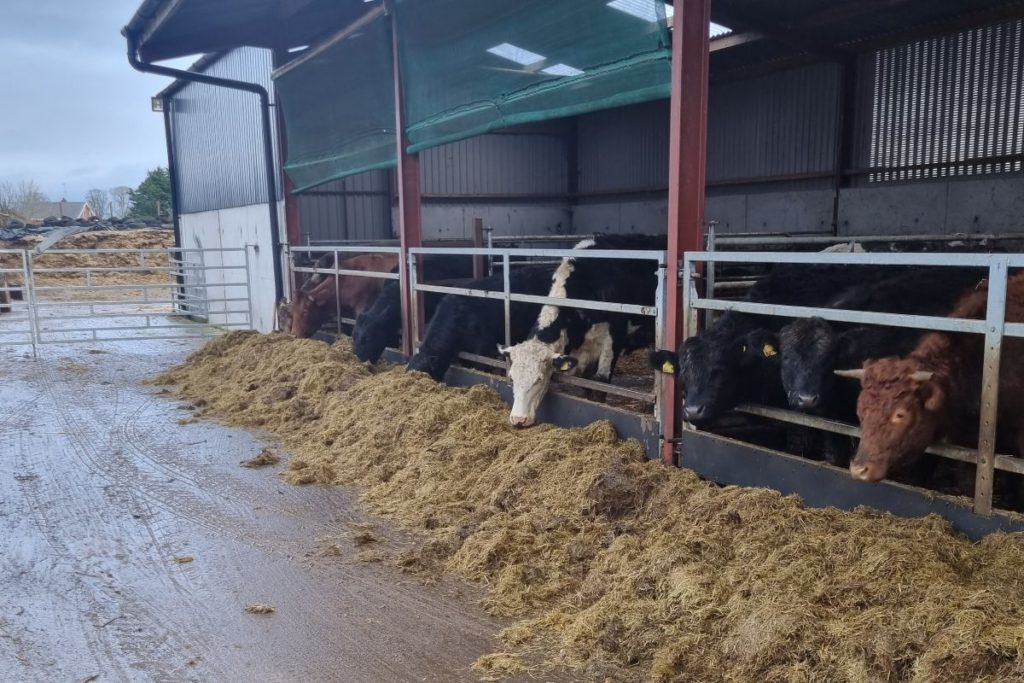
Future plans
Our vision for future farming is to be happy, enjoy farming and keep moving with the times but also have a life as you are only on this earth once.
As a woman in agriculture, I love life; it is hard work and challenging but rewarding. You will find me giving anything a go.
I also have a great interest in sheepdog trials. That is my next challenge; to purchase a good sheepdog.
In my view, you cannot work with sheep without one. In 2018, we had the privilege of having the international sheep trials, only 4 miles away from my home.
It is hard not to fall in love with animals. I tend to give cattle and sheep personal names.
We try to do our absolute best job caring for our livestock. My dad always says never fall in love with the animals, but I am too soft!”
To read more women in ag profiles.
To share your story like Lismaine Farm, email – [email protected]


